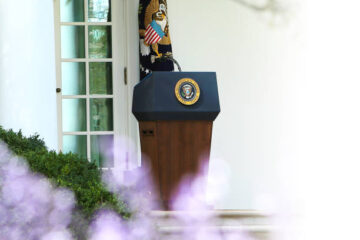Donald Trump is a businessman, and his policies naturally resonate with those who want to make a fortune or play in the markets, especially billionaires and large corporations.
Billionaire investor Stanley Druckenmiller is one of them. He believes that Trump’s re-election has reignited speculative market enthusiasm and bolstered business optimism.
“We’re probably going from the most anti-business administration to the opposite,” Druckenmiller told CNBC on Jan. 20.
“We do a lot of talking to CEOs and companies on the ground. And I’d say CEOs are somewhere between relieved and giddy. So we’re a believer in animal spirits,” he said.
Stanley Druckenmiller was formerly George Soros’s right-hand man. Following the presidential inauguration, Druckenmiller offered a bullish outlook for stocks.
Trump’s policies favor innovation and growth
Druckenmiller was bullish on what Trump could do for the markets even before the former president won November’s election.
Related: Stanley Druckenmiller’s net worth (& how he made Soros $1 billion)
If Trump wins, “you get animal spirits, deregulation, so the economy could be stronger for three to six months,” he said last year.
The Nasdaq Composite surged more than 6% in the month following Trump’s victory, bringing the index’s 2024 gains to approximately 30%.
Trump’s deregulation policies are generally viewed as positive for the stock market, especially for technology and cryptocurrencies.
Cathie Wood, chief of Ark Investment Management, also shared optimism about Trump’s policies.
“In the last four years, we saw massive concentration toward very few stocks,” Wood told CNN last December. “I think the market’s going to broaden out right now and reward companies who are at the leading edge of innovation.”
What stocks is Druckenmiller buying?
Druckenmiller was formerly George Soros’s right-hand man. He helped make the famous bet against the British pound in 1992, a trade that “broke the Bank of England.”
He is the former chairman and president of Duquesne Capital Management, which he founded in 1981 and managed until it closed in 2010. Over its nearly three decades, the firm delivered an average annual return of 30%.
After Druckenmiller closed Duquesne Capital to outside investors, he actively managed his wealth and investments under a family office structure, now called Duquesne Family Office.
Despite the overall bullish sentiment, Druckenmiller warned last year that “you would probably get a bad response in the fixed-income markets, which could snuff out the equity rally.”
A bad bond market response means higher interest rates, which slow the economy and, thus, corporate earnings.
Therefore, Druckenmiller remains cautious on the broader market. He told CNBC that he would focus on selecting individual stocks rather than being overly concerned with the market’s overall direction.
As of Sep. 30, 2024, Druckenmiller’s top five holdings are Natera (NTRA) , Coupang (CPNG) , Coherent (COHR) , Woodward (WWD) , and Seagate Technology (STX) , a mix of tech, online retail, engineering, and healthcare sectors.
All five stocks booked at least double-digit gains in 2024, with the top holding, Natera, surging 4x.
Related: Analysts reset Natera stock price target by 20%
Natera is a high-tech provider of genetic testing and diagnostics. Druckenmiller increased his stake by 80% during Q3 2024.
The billionaire is also short U.S. Treasuries, betting bond prices will fall as yields will rise.
“In terms of the markets, I would say it’s complicated,” Druckenmiller told CNBC. “You’re going to have this push of a strong economy versus bond yields rising in response to that strong economy, and that kind of makes me not have a strong opinion one way or the other.”
Druckenmiller believes that concerns over Trump’s punitive tariffs are risks “overblown.”
More 2025 stock market forecasts
Stocks face correction risk as Santa Claus Rally fails to deliverVeteran trader who correctly picked Palantir as top stock in ‘24 reveals best stock for ‘255 quantum computing stocks investors are targeting in 2025Goldman Sachs picks top sectors to own in 2025
“We have a fiscal problem, we need revenues,” Druckenmiller told CNBC. “To me, tariffs are simply a consumption tax that foreigners pay for some of it. Now the risk is retaliation, but as long as we stay in the 10% range, …I think the risks are overblown relative to the rewards, the rewards are high.”
Veteran analyst Ed Ponsi also said in a post on TheStreet Pro that the tariffs “would do little to harm companies that obtain the vast majority of their revenues from inside the U.S.”
“In fact, domestically focused companies could emerge as relative winners, particularly in industries like utilities, consumer staples, and healthcare, where reliance on international markets is limited,” Ponsi wrote on Jan. 21.
Related: Veteran fund manager issues dire S&P 500 warning for 2025


